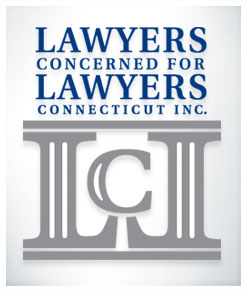Mental Health
Mental Health
Lawyers, colleagues, family and friends can sense when a member of the legal profession is struggling. As with substance use, attorneys are more prone than other professionals to experience anxiety, depression and mood disorders. Lawyers may feel compelled to maintain the aura of invincibility by focusing on their client’s problems while neglecting their own well-being. If you are suffering from any of these symptoms or feel anxious, isolated or overtaxed on a regular basis, help is here. Stress and anxiety need not impair your quality of life or ability to function at work. Every problem has a solution and LCL-CT can help you find it.
Mental Health Disorder
Signs & Symptoms
- Sad, empty, or irritable most of the time nearly every day.
- Missed court appearances, appointments, or deadlines.
- Declining work product or tardiness.
- Increase in goal-directed activity or restlessness at the expense of food or rest.
- No interest in or pleasure from activities once enjoyed.
- Confusion, difficulty focusing or indecisiveness.
- Impaired judgment or self-sabotaging behavior.
- “Ghosting” or avoiding others.
- Disheveled appearance or compromised personal hygiene.
- Self-medicating with substances (drugs or alcohol).
- Self-medicating with processes (Internet, gaming, gambling, shopping, eating, pornography).
- Racing thoughts, head or body aches, or frequent illness.
- Feeling overwhelmed, anxious or worried.
- Fatigue, exhaustion, lack of energy.
- Changes in weight, sleep and libido.
How Can LCL-CT Help?
Display None CSS
LCL-CT recognizes that heightened levels of stress, depression and anxiety are disproportionately present in the legal profession. Frequently a mental health issue can occur concurrently with a substance use disorder. These conditions can be devastating to a lawyer both professionally and personally.
Lawyer wellbeing is a high priority and critical element of LCL’s mission statement. To address our legal community’s need for confidential, private mental health support and care, LCL has available mental health professionals to whom the program refers Connecticut lawyers, judges and law students for free mental health evaluation and assessment services.
This program does not supply evaluations or other documentation to any regulatory or state agency. Involvement with this program is confidential in accordance with the provisions provided by statute.
To learn more about the free LCL mental health program, please contact us at info@lclct.org or call us at 860-563-4900.
Mental Health Care
LCL-CT recognizes that heightened levels of stress, depression and anxiety are disproportionately present in the legal profession. Frequently a mental health issue can occur concurrently with a substance use disorder. These conditions can be devastating to a lawyer both professionally and personally.
Lawyer well–being is a high priority and critical element of LCL-CT’s mission statement. To address our legal community’s need for confidential, private mental health support and care, LCL-CT has available mental health professionals to whom the program refers Connecticut lawyers, judges and law students for free mental health evaluations and assessment services.
This program does not supply evaluations or other documentation to any regulatory or state agency. Involvement with this program is confidential in accordance with the provisions provided by statute.
To learn more about the free LCL-CT mental health program, please contact us at info@lclct.org or call us at 860-563-4900.
Advocates Connection Support Group
LCL-CT sponsors a peer-driven support for lawyers, judges and law students which meets biweekly under the guidance of a professional group facilitator. No psychotherapy is provided at these peer support group meetings. Individuals in the group share their life experiences and challenges with well-being and mental health, and effective coping skills, as active members of the legal community.
To learn more about the Advocates Connection Support Group, please contact us at info@lclct.org or call us at 860-563-4900.
Lawyer Well-Being
-
From the Connecticut Bar Association: How to Reduce Your Stress and Enhance Your Well-Being
- Connecticut Bar Association: Well-Being Toolkit Nutshell: 80 Tips for Lawyer Thriving
- From the Connecticut Bar Association: Lawyer Well-Being— Moving the Conversation Out of the Shadows
-
Tips for Lawyers and Law Students to Avoid Burnout by Rachel Casper, Massachusetts LOMAP
